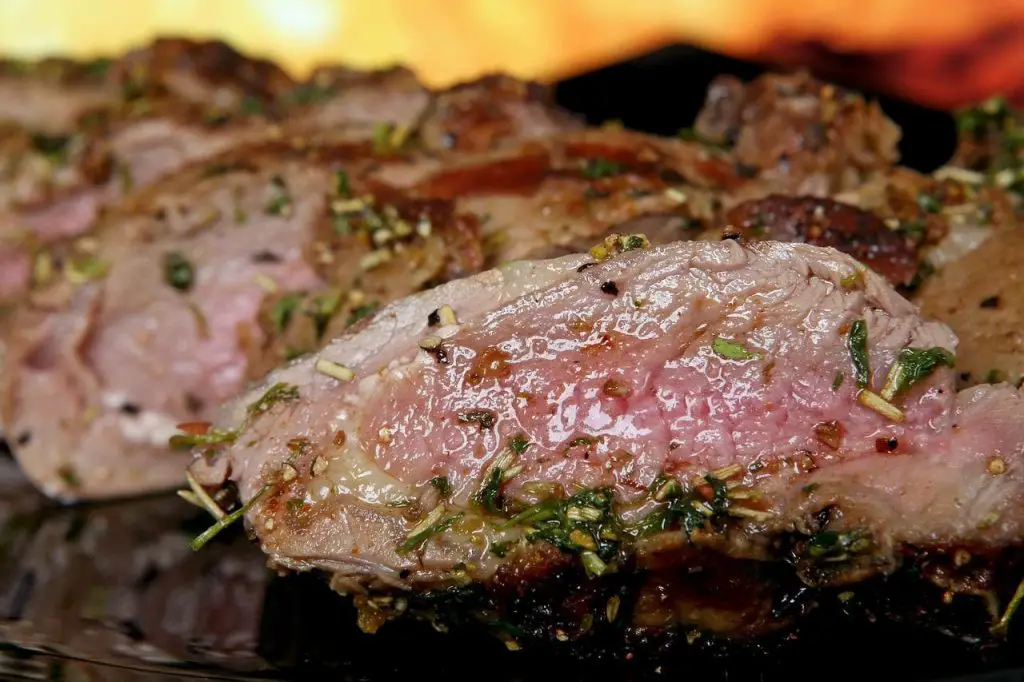When cooking venison, you have to keep in mind that the meat offers ideal conditions for bacterial growth. Despite being rich in protein, meat also contains up to 60 percent moisture. While meat is not overly acidic, time and temperature can still lead to spoilage or adulteration. As a result, USDA recommends that you never leave cooked venison out for more than two hours, even on a hot day.
Angus deer meat
Fresh, un-aged deer meat has a pronounced “fine-meat” aroma. You can easily tell if the meat has gone bad by touching its surface. Look for slimy or odd-looking spots, which are signs of bad-tasting meat. The meat should remain refrigerated or in the freezer for no more than two weeks. Angus deer meat is also easy to store in the refrigerator.
You can age your Angus deer meat before cooking and storing it. The USDA recommends that you keep fresh venison in the refrigerator for three to five days. After that, you should use cooked deer meat within three to four days. Leaving the meat out for too long will make the blood spoil. Some bowhunters adhere to the old rule of waiting eight to twelve hours to follow a gut-shot deer, but this can cause the meat to spoil.
Raw venison
It is possible to keep raw venison in the fridge for several days. When it is cooked, it will stay fresh for up to three days, but you must cook it thoroughly to keep it safe from bacteria. When cooking venison, use a food thermometer to test the internal temperature. While color and texture are not the only indicators of food safety, these are still important. After cooking, store it in the fridge tightly wrapped and preferably in the freezer.
Once cut, venison should remain in the fridge for several days. The flavor of raw venison will deteriorate quickly due to bacteria. It will become mushy or sticky, and it may even smell awful. The bacteria in spoiled meat can make you sick, so you should never consume it. Even leftover cooked venison can be dangerous. For this reason, it is important to properly store venison in the fridge.
Thawed venison
To ensure safe handling, it’s best to refreeze thawed venison separately from other meats in the refrigerator. Refrigerating meat at room temperature can promote the growth of harmful bacteria and fungi that can cause foodborne illnesses. In order to prevent this, the USDA recommends storing venison in the refrigerator for only two to three days after it is thawed.
In addition to the refrigerator, venison can also be thawed in the microwave. While microwaves allow meat to thaw quickly, their uneven heating process also means that the meat doesn’t cook all the way through. Because of this, thawed venison should be eaten as soon as possible. However, storing partially cooked meats at room temperature isn’t recommended either. If thawing venison at home, never do so outdoors.
Cooked venison
Once you’ve finished preparing your venison, you can store it in the fridge or freeze it. Make sure you wrap the meat tightly to prevent air from getting in, but leave some space between each package. Place it in the freezer, and rotate packages after 3 to 4 hours. Don’t add more meat. That will lower the freezer temperature, and your venison won’t last as long.
You can freeze leftover cooked venison for up to a year, but the meat will lose its flavor, aroma, and texture after that. The meat will also become mushy and sticky, making it unsafe for consumption. Don’t try to reheat cooked venison, either, since bacteria will continue to grow and multiply unless you make it palatable again. Once cooled, it will keep for three or four days in the fridge.
Aged venison
While ageing venison in the fridge isn’t a great idea, storing the meat in a cooler can be a good solution for those who want to preserve their meat for later use. The downside of aging meat in a cooler is that if the temperature is under 34 degrees F, it will freeze. If the temperature is above 37 degrees, it will decompose rapidly, leaving you with unsanitary meat and possibly food poisoning. Moreover, aging venison outdoors exposes the meat to bugs and critters, making it unsanitary and potentially hazardous to eat. Luckily, aging meat in a cooler provides a cool and controlled environment for a longer period of time, reducing the likelihood of any problems from developing.
Although it is possible to age venison in the fridge, there are advantages to using an outside refrigerator, such as walk-in coolers. These coolers are ideal for aging meat, and are also convenient for hunters who are on an extended trip. While air aging is the simplest method, it is not as effective as aging the meat in the fridge because you need to monitor outdoor temperatures. The resulting aged meat will be more flavorful and tender.


